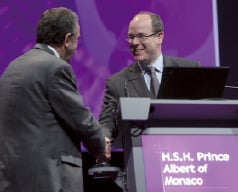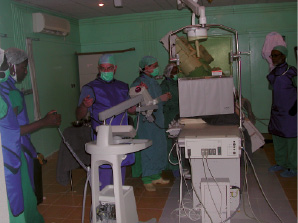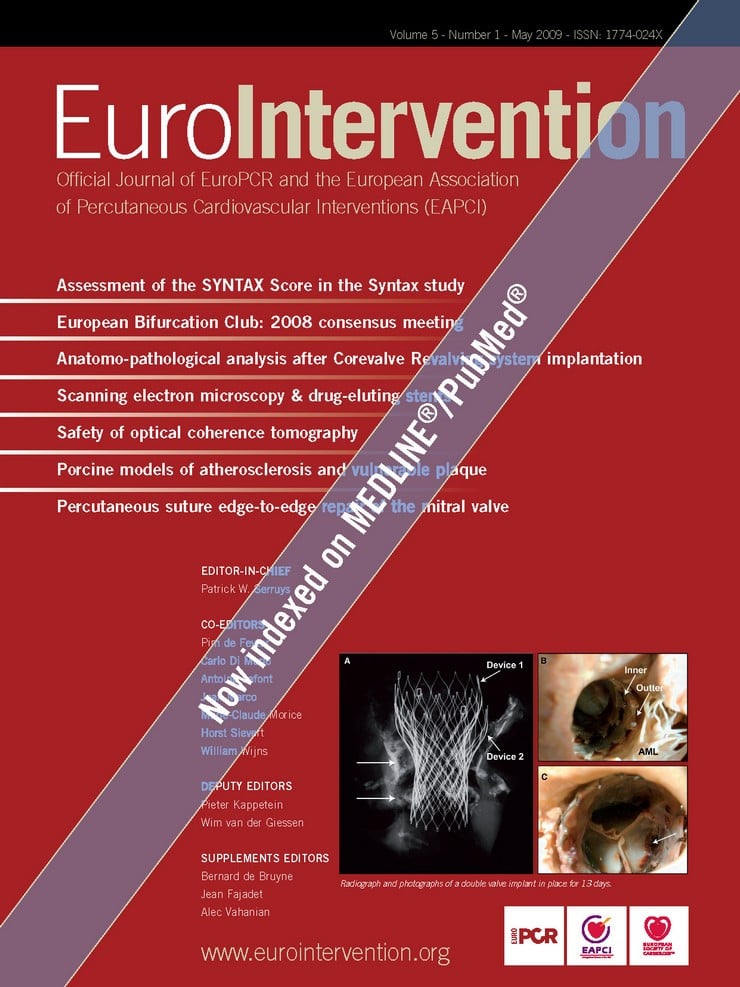
In previous editions of our EAPCI column, we spoke briefly about the new SHARE-initiative, and now that the project is underway we would like to provide our members, along with the readership of this Journal, with further information.
An obvious unmet need
As we all know, cardiovascular disease is the leading cause of mortality worldwide, accounting for 17.5 million deaths annually. Eighty per cent of these deaths and eighty-seven per cent of related disabilities occur in low and middle-income countries, many of which are faced with a double burden of disease – infectious and cardiovascular. The proportion of deaths due to cardiovascular disease is expected to continue rising in these countries, as their economies grow.
The African continent accounts for about 14% of the world’s population. Africa offers the lowest output of cardiovascular research and needs more than just imported measures from more developed countries. Africa is in urgent need of medical education, administrative support and management skills.
Participation and involvement in associative initiatives has always been important to the members of the EuroPCR Board of Directors, several of whom independently are already involved in focal projects. The joint EuroPCR/EAPCI group decided that the time was right to consolidate these individual actions under the umbrella of an official structure, and that doing this was both logical and of great value. Concomitantly, Monaco’s expertise and leadership across a number of successful humanitarian missions, along with the active encouragement by Monaco’s highest official authorities led by His Highness the Prince Albert II of Monaco, have been critical in the creation of the association SHARE, officially registered in Monaco since October 2008.
A joint initiative
SHARE stands for a joint Monaco/EuroPCR/EAPCI initiative to Sustain Health development in Africa through Responsible Education. Its mission is to contribute to the training and education of the entire medical team (medical, para-medical, administrative, financial, health providers, etc.) in selected sub-Saharan African countries, with the aim of developing local interventional cardiovascular units that will help reduce the burden of cardiovascular disease in both adults and children.
SHARE will review country projects that fit well with its mission, developing training programs for the expanded medical staff involved in the creation/development of a professional cathlab team. Additional items, identified as critical to the sustainability of the project based on local conditions, will be duly supported by SHARE as well. Depending on the maturity of the projects we identify, this could lead us to anything from a two to five year, all the way up to a 10-year commitment for supportive actions. Needless to say, one has to be fully aware of the extensive involvement this project requires.

H.S.H. Prince Albert of Monaco greeted by Jean Marco, EuroPCR, Barcelona 2008.
A best practice case example
To provide more pragmatic insights, let’s examine some of the details of our first project. In Nouakchott, Mauritania, at the Cheikh Zayed Hospital, a cardiovascular unit was created in 2003 at the initiative of François Bourlon, a French interventional cardiologist working in Monaco (and now Vice-President of SHARE). Originally, a team of Mauritanian professionals (cardiologists, cathlab nurses, technicians, managers and administrative staff) were identified and gathered together, whilst offered an adequate training and education plan over the following years. An on-going and continuous programme where the Mauritanian personnel are trained both in Europe and at home; in this particular instance, they receive training at Dr. Bourlon’s institution by Dr Bourlon himself and his colleagues, or work at their own clinic in Nouakchott. François Bourlon and his associates have thus committed themselves also to regular educational visits to Nouakchott, with actual cases performed on-site. All necessary equipment and devices are now available there – SHARE can be of help in providing this as well– and the cases performed in Nouakchott have become instrumental in getting the programme started locally. Many patients, who have been diagnosed with cardiovascular disease, can now receive the most adequate treatment (including intervention) without having to travel to other countries – which was something they would have had to do before this SHARE programme began. The Mauritanian experience exemplifies the promise of this project, and truly fulfils the mission of SHARE.
We are at the infancy in the development of our association SHARE. We are ambitious and believe that the combined Monaco/EuroPCR/ EAPCI expertise has set the proper basis for a thoughtful, ethical and respectful development over the coming years.
Beyond support by the Monaco authorities, we need and count on support, funds, contributions from the broader cardiovascular community, i.e., cathlab teams, hospital/institutions, industry partners. As we continue to evolve, developing our action plans, we will provide you with further details so that your support can be properly channelled. We trust that we can count on the active contribution of the interventional community in this endeavour.
Please send all requests for further information or questions to Patrick Jolly at [email protected].

Starting left ventricular angiogram, supervised by François Bourlon, in the newly built cathlab at the Cheikh Zayed Hospital, Nouakchott, Mauritania.

